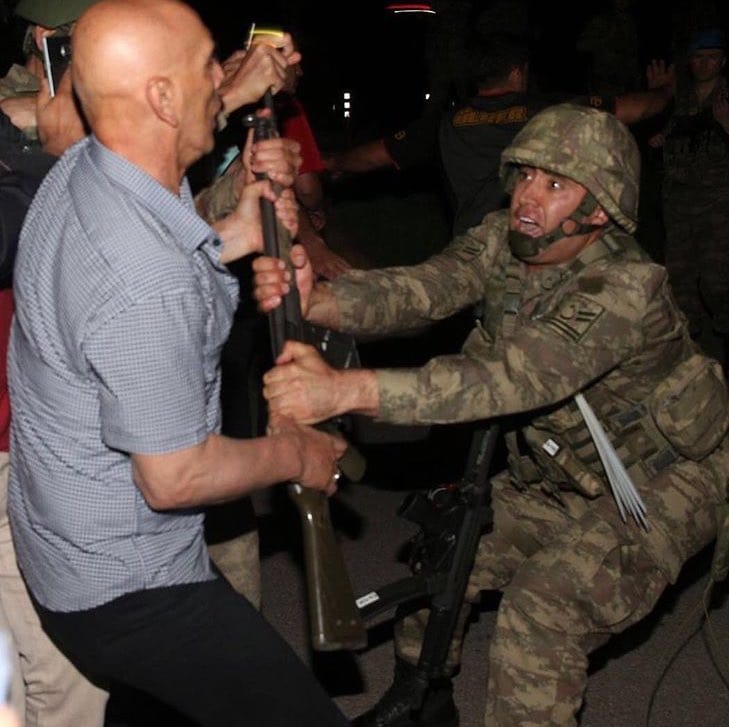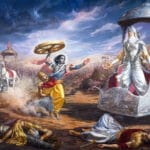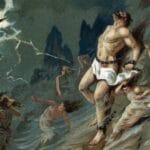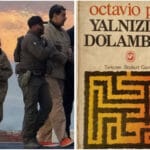“We must uproot the old trees and plant young ones in their place.”
—Alaaddin Keykubat
Türkiye is striving to bring the twentieth century to a close. It is fighting to end its own Cold War. It seeks to liberate the state placed under the wardship of the West, to shatter its false polarizations, to transform the Cold War’s tutelary order, and to chart a new course—at both the national and regional levels—that is reconciled with its past. In a time when Westernization is living out its final moments—both because it has achieved its goals and because the West has nothing left to offer—Türkiye is rediscovering its Eastern self. A stage is now emerging on which original models of modernization can be debated. As the conditions that once gave birth to the Republic—that instinctive reflex to the trauma of the Ottoman collapse, akin to curling into a fetal position during a great earthquake—fade away, the rote convictions of those who have memorized the Republic as the eternal ideal of their privileges are beginning to crumble. Every new reality renders the old not merely obsolete, but even a further burden. Despite all the toxic influences working against it, society is gradually turning inward—choosing to look to itself, its past, and to one another rather than to the West. Many of the old problems—urbanization, education, health, roads, water, electricity, bureaucracy—are now being buried in the past as little more than memories. Türkiye is once again hurtling toward yet another new state of being. Yet in matters of dependence on the West, clarifying its own identity, and clearly defining its path and direction, no real progress has been made. It is as if we are watching a transatlantic liner adrift—perhaps even nudged along by a faint touch of divine intervention—slowly steering toward itself. The old order has become impossible, but the new one remains only imagined.
Perhaps because the liquidation or transformation of the old order has not yet been brought to completion, no clear horizon for the New has yet come into view. One major reason lies in the absence of an intellectual stratum capable of truly embodying the collective mind and wisdom of society. Since the Tanzimat era, the literate class—those labeled as the “intellectuals”—have been plagued by chronic problems in their relationship with society, with the state, and in their very perception of the world. These deficiencies have prevented the germination of organic ideas that might chart a course for both society and the state. From an intellectual storehouse consisting solely of the polemics between Eastern-oriented thinkers who criticize the West from within the Western paradigm, and Westernist thinkers who advocate modernization through an internalized Eastern sense of inferiority, no cure for the twenty-first century can possibly emerge.
The intellectuals of the Tanzimat era opposed the immediate causes that led to the decline following the defeat at Navarino, yet they neglected to question the deeper conditions that had produced those very causes. Lacking not only philosophical grounding but also the economic and political instruments of interpretation, they developed a fragmented—almost fractal—pattern of thought across many issues. In seeking their own roots, they ventured as far as Europe’s roots, attempting to conduct their own reckoning while navigating through the European mind map. The paradigmatic sea upon which our world of ideas still floats has yet to escape this dramatic impasse.
There are, without doubt, a thousand and one reasons for this state of intellectual inadequacy. Yet today, as we strive to shed the burdens of our recent past, the Walt Kelly paradox we are living through confronts us with an unyielding truth: we are in urgent need of a deep and uncompromising reckoning with ourselves—“We have encountered the enemy, and it is us!”
When, as republicans, we are unsettled by the strengthening of the cumhur; as democrats, by the sovereignty of the demos; as progressives, by the nation taking its most advanced steps; as modernists, by the realization of the most comprehensive modernization projects in our history; as ümmetçi, by a renewed meeting with the Islamic world; as Islamists, by jointly undertaking revolutionary transformations with Islamic movements; as Turkish nationalists, by reaching a state whose flag, passport, and reputation command respect across the globe; as Kurdish nationalists, by witnessing the most free and hopeful developments concerning Kurdishness; and as leftists, by the implementation of the most democratic and socially minded policies in recent memory—when we find ourselves disturbed by all of these, we must recognize that we are staring straight at a grave problem. The enmities that have made their home within each of us are not happenstance; they are the telltale symptoms of a deep and pervasive illness.
This pathological tableau—where the ideologically literate crowd, offering not the slightest contribution to any step of change or transformation, instead mounts the fiercest reaction, resistance, and hatred, rallying all its strength into counterrevolutionary ranks and waging nothing less than a fight to the death—lays bare the following truth: The groups that Cemil Meriç called mustağrip intellectuals (self-Westernized intellectuals)—whether progressive, leftist, rightist, or Islamist—have been poisoned by the catastrophic collapse that has endured from the Tanzimat through the Republican era, and have mutated into parasitic elements, endlessly injecting this toxin into society. While ostensibly seeking to diagnose problems and propose remedies from within the Western paradigm, these generations of intellectuals dismantle whatever belongs to us and—most insidiously—spread hollow rhetoric that erodes the very self-confidence of the nation. Confronted with the liquidation of the old order, they appear seized by an existential panic for their own survival. We stand before a barricade of “educated ignoramuses,” in which the most vital processes of change and transformation in our country are carried out by the most ordinary and unassuming cadres, while the most ambitious, zealous, and self-assured among the intellectuals persist in trying to engineer the state and society from the lofty perch of oppositional arrogance. Perhaps these were the very colonizers the West left behind for us when it set up its self-colonization mechanisms on our soil and then withdrew. When the late Erdem Beyazıt said, “These people always waited for tomorrow; they never realized when it came,” perhaps he was speaking of this toxic blend of bewilderment and treachery among the so-called elite. We know of no other country whose people can be such deliberate hypocrites toward their own beliefs and claims.
We cannot hope to build the future without first resolving this paradox—one that alienates every university-educated literate person, beginning with their own parents, and then gradually from their city, their country, their society, their state, and even from the true dynamics of their own political convictions. For we—that is, biz’im, all of us, with all our religions, sects, creeds, and social communities—are bound together in the task of constructing a common future, in a shared consciousness of state, nation, and homeland. On all other matters there may be divergent interpretations and proposals, but at the very least, we must share an acceptance of the minimum principles and institutions that make coexistence possible. Those who embody and continually regenerate this foundational common perception are the intellectual stratum. Social problems and their remedies can, in part, be addressed through practical needs and reflexes. Yet it is the münevver—the true intellectual—who stands guard over the common idea, understanding, and spirit that inspire such practical solutions. The intellectual who genuinely represents free and critical thought draws both independence and intellectual vitality from organic relationships. By contrast, the type of intellectual who wages a constant battle with society, with the state, with the land itself, and even with their own self—severed from this organic ground—cannot truly be said to possess either genuine freedom or authentic productivity.
Today, our country stands in need of an intellectual horizon—one capable of rekindling the sense of nationhood, securing the state’s foundation in the hands of the people, establishing an organic economic-political order, and shaping a social personality that has not been fractured into isolated atoms. While the problems of the old Türkiye were resolved through the people’s plain, simple, yet profoundly instinctive reflexes, the first step in constructing the new must be to create an intellectual arena in which these deep-rooted issues can be confronted in full. We must set aside the Kemalist, leftist, rightist, nationalist, and liberal intellectual cliques—those who embody the trauma of the Tanzimat and Republican periods and whose minds are consumed by hollow polemics—and start again from the very first letter of the alphabet. To build a new state, to once again become a nation, and to discover our shared ideal—one that will stand as a representative of the civilization of human values within the human family—we must break every rote dogma and smash every idol.
We (Biz) must begin with ourselves—with the acceptance of defeat lodged deep within Biz, and with the real enemy that breeds hatred and violence toward one another. This enemy is the corrosive self-resentment that eats away at our very national existence. The fact that Turkish nationalism turns against the values that embody Turkishness; Kurdish nationalism against the values that embody Kurdishness; Islamism against the ancient Islamic tradition; leftism against revolutionary democratic principles; liberalism against democratization; and Kemalism against national modernization—all of this points to a single truth: we have not yet resolved the question of becoming a nation. For the nation, as a hypothetical construct, is not—contrary to Durkheimian sociology’s artificial definitions—a unity of religion, language, homeland, or state, but a shared sense of Biz. What the Western paradigm fails to see—when it interprets the nation as the homogenization of ethnic differences or the creation of a uniform social group—is the simple yet profound bonds among ordinary people that give life to this sense of Biz. In a society where the very intellectual strata that ought to protect and nurture this feeling have instead destroyed it, nationhood can in no way be considered complete. Perhaps this is why the society that history has gathered together in this geography—despite all nationalist, chauvinist, and homogenizing propaganda—can be so easily corrupted, divided for the most trivial of reasons, and perpetually sacrificed to cheap hostilities.
The so-called popular leaders who wage war against the nation hide behind the supposed legitimacy they derive from their battles with the state, and in doing so, they continually deform the very minimum foundations of nationhood. The perpetuation of our lost sense of self is made possible by the false struggles of these false leaders. Even if the West were never to act as an external enemy, we would be more than sufficient to undo ourselves. Unless we eradicate this black hole within us, we can never truly become a nation. The mere existence of those obsessed with adding racial or other qualifiers before or after the name of a nation that does not yet exist is, in itself, nothing less than a tragic manifestation of this black hole.








